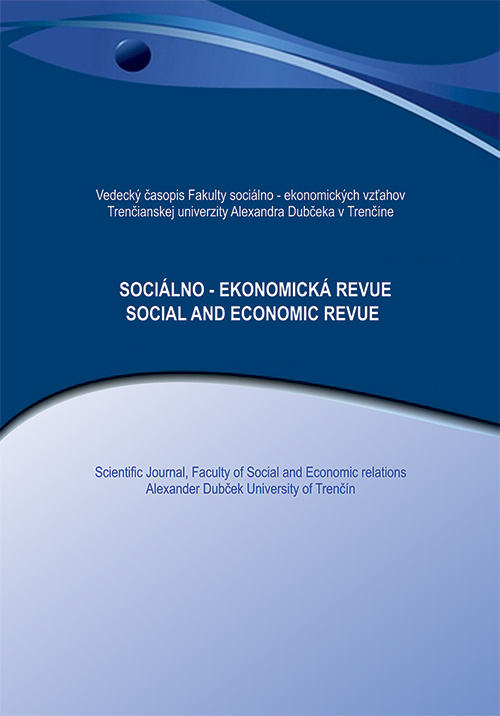THE ROLE OF HUMAN RESOURCE MANAGEMENT IN THE RURAL AREA IN HUNGARY
The unemployment rate is approximately two-four percent higher in villages than in towns. Respectively, investigating those who have been unemployed for more than a year this difference is even higher which shows the actuality of investigating the problem. The required factors of production are used in varying degrees during the production process. These rates depend on the activity, because there would be labour and capital intensive businesses. In any case, we do not know any production activity which would not demand labour, or would not use a certain amount of space and resources directly or indirectly. The competitiveness of the rural areas of Europe and Hungary depend on their economic growth and the implementation of sustainability. We need to establish new complex rural and settlement strategies to stop the negative processes in the disadvantaged regions, which will result in a competitive agricultural structure and the possibility to employ the great numbers of low-qualified people living there.
Vydanie: 2017/1 Strany: 33-38 Klasifikácia JEL: R14, R125, M54
DOI:
Kľúčové slová: human resource, rural area, unemployment
Sekcia: HUMAN RESOURCES AND PERSONNEL MANAGEMENT
Kontakty:
Robert Magda Phd, associate professor,
Szent István University,
2100 Gödöllő Páter K. út 1.
Hungary
e-mail: magda.robert@gtk.szie.hu
Literatúra:
Bozsik N. (2004). Research of the competitiveness of the Hungarian agricultural products. (In Hung.) Gazdálkodás 9. sz. különkiadás, p. 21-34.
N. Bozsik (2012). Economic Impacts of Hungarian Membership in the European Union. Mykolo Romerio Universitetas. Research papers. No. 1 (1) p. 662-672. ISSN 2335-2450. Vilnius (Litvánia)
N. Bozsik (2012). Macroeconomic experiences of Hungary since the accession to the European Union. Volyn Institute for Economics and Management. Research papers. No. 2012/3. p. 115-126 ISSN 2224-8609. Lutsk (Ukrajna)
Herneczky A., Marselek S. (2013). A hazai agrár-felsőoktatás helyzete. Erdei Ferenc V. Tudományos Konferencia 2009.szeptember 3-4. Kecskemét Konferenciakötet III. 1059-1063.p
Magda R. (2010). Földhasználat és fenntarthatóság. Gazdálkodás, LIV. évf. 2. sz. 160-168. p.
Magda R. (2010). Fenntartható földhasználat. A magyar megújuló energia startégiai hangsúlyai és kísérleti bemutatása. Gyöngyös, 2010. 32-40. p. ISBN 978-963-9941-10-6
Magda R, Marselek S. (szerk.) (2010). Vidékgazdaságtan I. A vidékfejlesztés gazdasági folyamatai. Szaktudás Kiadó Ház, Budapest. 1–297. p. ISBN 978-963-9935-42-6
Magyar Statisztikai Évkönyv (1995, 1996, 2001,2006,2008,2009, 2013), Központi Statisztikai Hivatal, Budapest
Mezőgazdasági Statisztikai Évkönyv, 1986 (10) Statisztikai Tükör, 2011. április 13. 2011/5, KSH
[on-line]. [cit.: 02-24-2016]. Available at: http://portal.ksh.hu/pls/ksh/docs/eng/agrar/html/tabl1_3_1.html
European Commission. (2017). [on-line]. [cit.: 02-24-2016]. Available at: http://ec.europa.eu/eurostat/statisticsexplained/images/e/eb/Employment_rate_age_group_20_to_64%2C_by_country%2C_2008_and_2015.JPG


